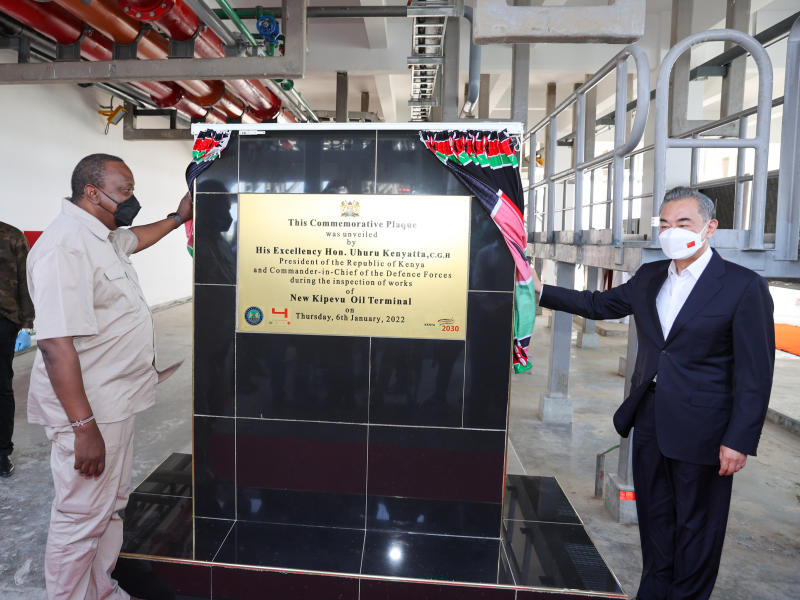×
The Standard e-Paper
Kenya’s Boldest Voice

President Uhuru Kenyatta with visiting State Counsellor and Minister for Foreign Affairs of the People’s Republic of China Mr Wang Yi when they unveiled a commemorative plaque during an inspection tour of the ongoing construction of the new offshore Kipevu Oil Terminal at the Port of Mombasa. [Courtesy]
Kenya should use Chinese Foreign Minister Wang Yi’s visit to seek trade deals that can help local firms do business in the East Asia country.







